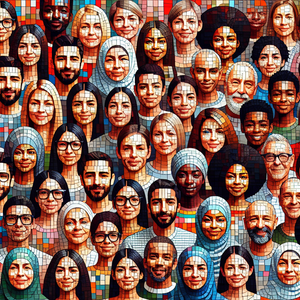More Than Music: Jay-Z's Transformational Role in Hip-Hop Entrepreneurship

Jay-Z's ascent began in the Marcy Projects of Brooklyn, where the harsh realities of life inspired him to pursue a better future. His music career took off with the release of "Reasonable Doubt" in 1996, a project that showcased not only his lyrical genius but also his acumen for storytelling. As he gained traction in the music industry, Jay-Z recognized the importance of diversifying his income. This foresight led him to co-found Roc-A-Fella Records with Damon Dash and Kareem "Biggs" Burke, marking his first significant foray into entrepreneurship. The label not only produced hit albums but also created a blueprint for artist-led enterprises, emphasizing the importance of ownership in the music business.
Breaking Barriers in the Music Industry
By the late 1990s and early 2000s, Jay-Z had solidified his reputation as a lyrical powerhouse. However, his vision extended well beyond music. He was a pioneer in recognizing the intersection of branding and hip-hop culture. His partnership with Reebok for the S. Carter sneaker line exemplified his ability to intertwine music with fashion, creating a brand that spoke directly to his audience. This initiative set a precedent for future hip-hop artists, showing them the potential for lucrative partnerships outside of music sales. Jay-Z’s strategic moves in merchandising and endorsements have since encouraged many artists to explore similar paths, illustrating the power of branding in the hip-hop industry.
Creating Roc Nation: A New Era of Music Management
In 2008, Jay-Z took a monumental step by launching Roc Nation, an entertainment company that would redefine the music management landscape. Unlike traditional labels, Roc Nation prioritizes artist development, branding, and empowerment. It has signed a diverse roster of talent, including musicians like Rihanna and J. Cole, as well as athletes like Kevin Durant. By fostering a creative environment where artists can thrive, Jay-Z has shifted the narrative of music management, encouraging a model that emphasizes collaboration and artist agency. This revolutionary approach has inspired other artists and entrepreneurs to consider how they can take control of their careers and brands.
Influencing a Generation of Entrepreneurs
Jay-Z’s impact goes beyond his achievements; he has become a beacon of inspiration for a new generation of hip-hop artists. Through initiatives like the "Shawn Carter Foundation," he underscores the importance of education and entrepreneurship in underserved communities. His philosophy resonates with emerging artists who aspire to build sustainable careers in music. This shift in mindset is evident as more artists are launching their own brands, investing in real estate, and exploring diverse business ventures. The entrepreneurial spirit that Jay-Z embodies encourages young artists to think beyond their music, fostering a culture of innovation and self-reliance.
Navigating Challenges and Embracing Change
In an industry characterized by rapid change, Jay-Z has faced numerous challenges, from shifts in music consumption to evolving revenue models. Rather than resisting these changes, he has embraced them, positioning himself as a leader in the digital age. His partnership with Tidal, a streaming service he co-owns, exemplifies his forward-thinking approach. By prioritizing artist compensation and offering high-quality music experiences, Jay-Z has highlighted the importance of adapting to new technologies while advocating for artists' rights. This commitment to innovation ensures that he remains at the forefront of the music industry, influencing how artists interact with their audiences and monetize their work.
Jay-Z's remarkable journey from a young boy in Brooklyn to a billionaire entrepreneur is a testament to the transformative power of entrepreneurship within hip-hop culture. By redefining what it means to be a successful artist, he has paved the way for future generations to follow in his footsteps. His influence extends far beyond the realm of music, inspiring countless individuals to embrace their entrepreneurial spirit and strive for greatness. As Jay-Z continues to innovate and expand his empire, his legacy as a transformative figure in hip-hop entrepreneurship is firmly established. He proves that the rhythm of success is found not just in music, but in the boldness to venture into new realms, creating a lasting impact on both culture and commerce.
Music Business Manager
Major record labels (e.g., Universal Music Group), artist management firms, independent music agencies
Core Responsibilities
Oversee the financial and business affairs of music artists, including contract negotiations, budgeting, and financial planning.
Develop strategic marketing campaigns to enhance an artist’s brand and reach.
Collaborate with record labels, producers, and promoters to facilitate successful music releases and tours.
Required Skills
Strong understanding of the music industry, including knowledge of copyright laws and distribution channels.
Excellent negotiation and communication skills to effectively advocate for artists.
Proficiency in financial management and budgeting tools.
Brand Strategist in Music and Entertainment
Music labels, entertainment marketing agencies, public relations firms
Core Responsibilities
Develop and implement comprehensive brand strategies for artists and entertainment properties.
Analyze market trends and consumer behavior to refine branding efforts and promotional activities.
Coordinate with creative teams to ensure brand messaging aligns with the artist's image and values.
Required Skills
Strong analytical skills for market research and brand performance evaluation.
Creativity in developing innovative marketing campaigns that resonate with target audiences.
Experience in digital marketing and social media management, particularly in music contexts.
Digital Marketing Manager for Artists
Music labels, independent artists, digital marketing agencies specializing in entertainment
Core Responsibilities
Design and execute digital marketing campaigns to promote music releases, merchandise, and brand collaborations.
Manage social media platforms, engaging with fans and building a community around the artist's brand.
Analyze campaign performance using analytics tools to optimize digital strategies.
Required Skills
Expertise in digital marketing techniques, including SEO, PPC, and email marketing.
Strong knowledge of social media platforms and emerging trends in music consumption.
Ability to create compelling content that reflects the artist's brand voice and engages the audience.
Artist Development Specialist
Artist management firms, record labels, music production companies
Core Responsibilities
Work closely with emerging artists to develop their music, image, and overall brand.
Provide guidance on songwriting, performance skills, and personal branding.
Collaborate with production teams to ensure artists' vision is realized in their recordings.
Required Skills
Background in music production or performance, with a keen ear for talent development.
Strong interpersonal skills to build relationships with artists and industry professionals.
Knowledge of current trends in music and the ability to adapt strategies accordingly.
Music Licensing Coordinator
Music publishers, film and television production companies, advertising agencies
Core Responsibilities
Facilitate the licensing of music for various media, including film, television, and advertising.
Negotiate licensing agreements and ensure compliance with copyright laws.
Maintain relationships with artists, publishers, and production companies to maximize licensing opportunities.
Required Skills
Understanding of music rights management and licensing processes.
Strong negotiation and communication skills for dealing with diverse stakeholders.
Detail-oriented with excellent organizational skills to manage multiple projects simultaneously.


